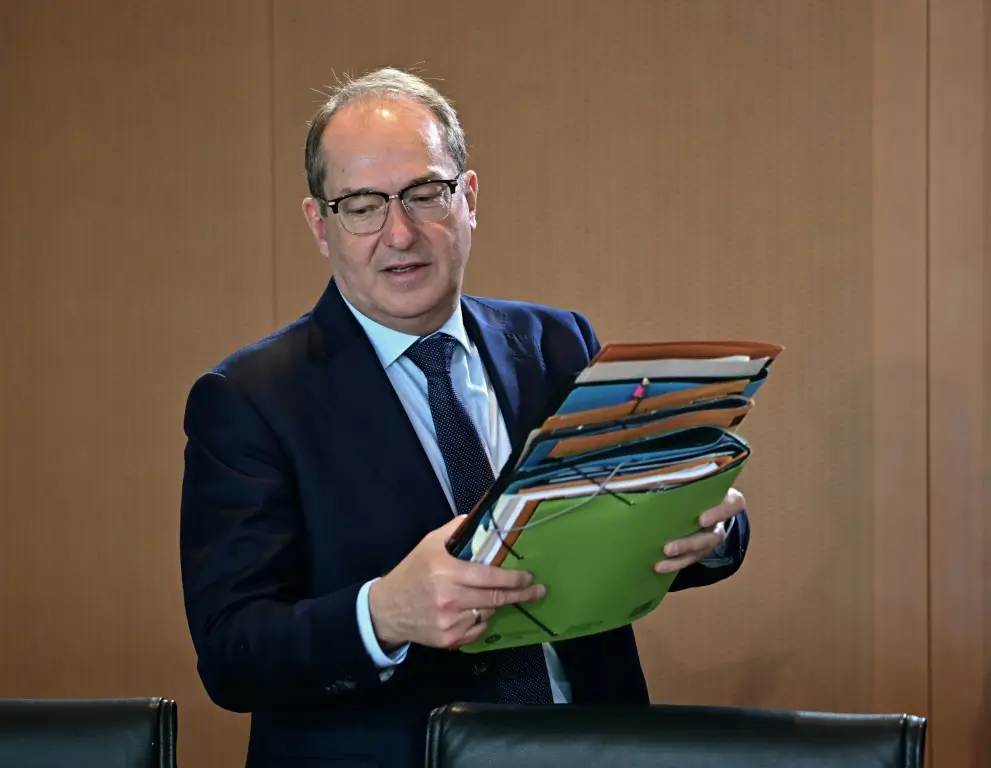
Following the Bundestag's ousted election of three constitutional judges, Federal Interior Minister Alexander Dobrindt (CSU) has expressed his openness to talks with the Left Party. He would "not have the problem picking up the phone and calling someone at the Left Party," Dobrindt told Deutschlandfunk on Saturday. He would hold such talks with the Left Party "if necessary."
However, the CDU party has a resolution in place that excludes cooperation with the Left Party at all levels. This incompatibility resolution was passed at a CDU federal party conference in 2018.
Dobrindt recalled on Deutschlandfunk the election of the Federal Chancellor, which had only become possible in the second round of voting with the procedural assistance of the Left Party - after the CDU candidate Friedrich Merz had surprisingly failed in the first round of voting, the Left Party had made a second round of voting in the Bundestag possible on the same day.
At the time, he was the only one who had a cell phone number for the Left Party, Dobrindt said. Now he can say: "I even have a second phone number I could call." A two-thirds majority is required for the election of constitutional judges in the Bundestag. This could require the votes of the Left Party or the AfD.
The Bundestag was supposed to vote on the appointment of three judges to the Federal Constitutional Court on Friday. However, the CDU/CSU parliamentary group called for the cancellation of the election of SPD candidate Frauke Brosius-Gersdorf at short notice, citing allegations of plagiarism. After an hour and a half of crisis talks between the coalition partners, the CDU/CSU and the SPD, all three planned judicial elections were finally removed from the agenda.
Dobrindt does not see the CDU/CSU parliamentary group leader as being damaged by the incident. However, when asked on Deutschlandfunk radio about Spahn's responsibility for the pre-arrangements for the ultimately canceled judicial election, the CSU politician did not explicitly address it.
The process was not normal, but he did not find it "totally unusual" that such a selection process could always be fraught with uncertainties and that decisions sometimes turned out differently than planned -even if in this specific case it was of course not something that had ever happened before, said Dobrindt.